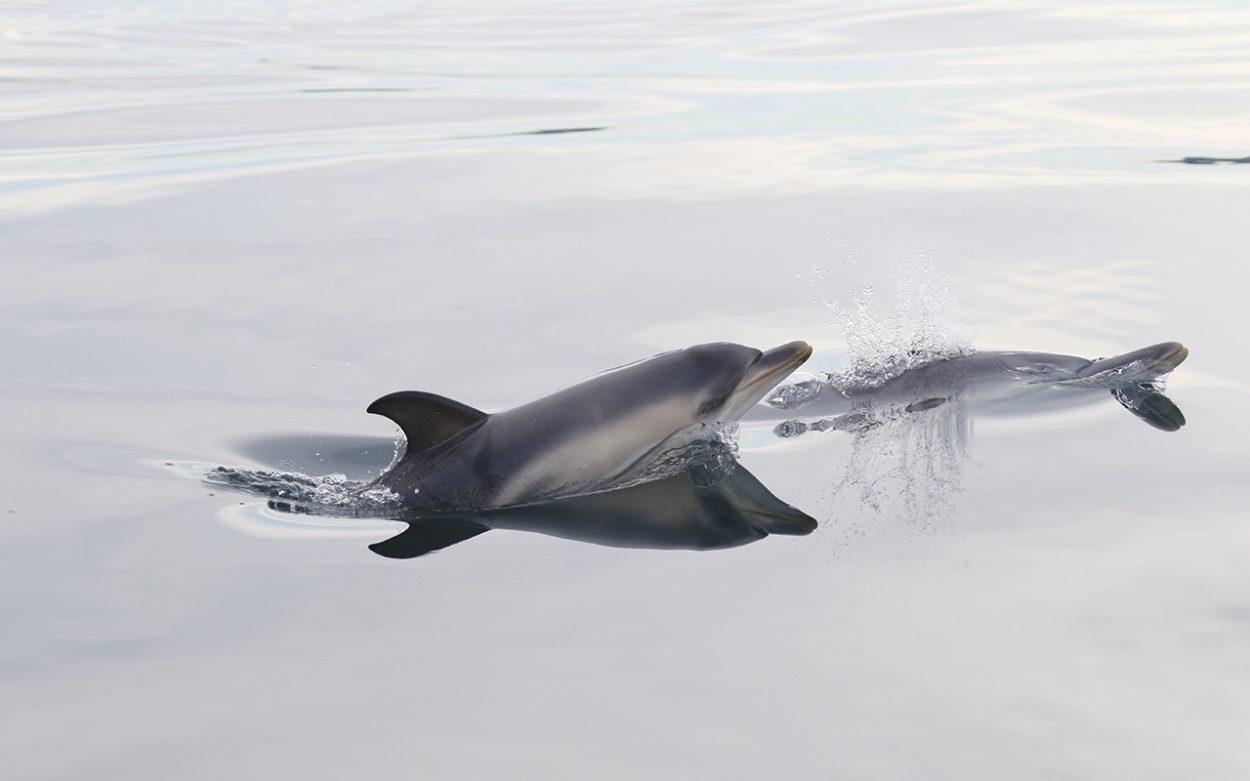A HEARTWARMING discovery of a new baby dolphin in Port Phillip Bay has created a whirl of excitement for scientists from the peninsula’s Dolphin Research Institute. The newborn calf, born in the middle of November, marked an exciting milestone for the dolphin community – with the sighting being even more remarkable as Port Phillip is the only bay in the world where common dolphins reside.
Ella Hutchinson, the Institute’s Williamson Research Fellow, expressed her delight. “It wasn’t until I uploaded the images to my computer that I realised the significance of this tiny dolphin,” she said. “At first, I couldn’t believe what I saw and needed to confirm it with my colleagues.” The newborn was confirmed as the first known calf of the fourth generation of Port Phillip’s community of common dolphins.
The tiny dolphin is the first calf of Starfall, the grandcalf of Hailey and the great-grandcalf of Esther, the Institute said. “Esther is a remarkable mother who we think had her first calf in 2007. She also has a new calf, her fifth, and it’s only a few weeks older than her great-grandcalf!”
There are now 165 common dolphins in the bay following the Institute’s first sighting of five common dolphins near Mornington in 2005. With at least seven common dolphin calves reliant on their mothers, the Institute said the coming months were crucial for their survival. “We urge boat owners to respect our dolphins during summer and not deliberately approach them”, the Institute’s executive director Jeff Weir said. “If you see dolphins, just slow down or stop if it’s safe; they may even come to you. Enjoy the experience and let them swim off without following.” He said the basic rules are not to approach dolphins closer than 30 metres for swimmers, 100 metres for boats, and 300 metres for jetskis.
The newborn calf does not have a name yet with the Dolphin Research Institute inviting everyone who joins their Adopt-A-Dolphin program over summer to suggest names for these unique dolphins. Visit www.dolphinresearch.org.au for more information.
Add A Comment




